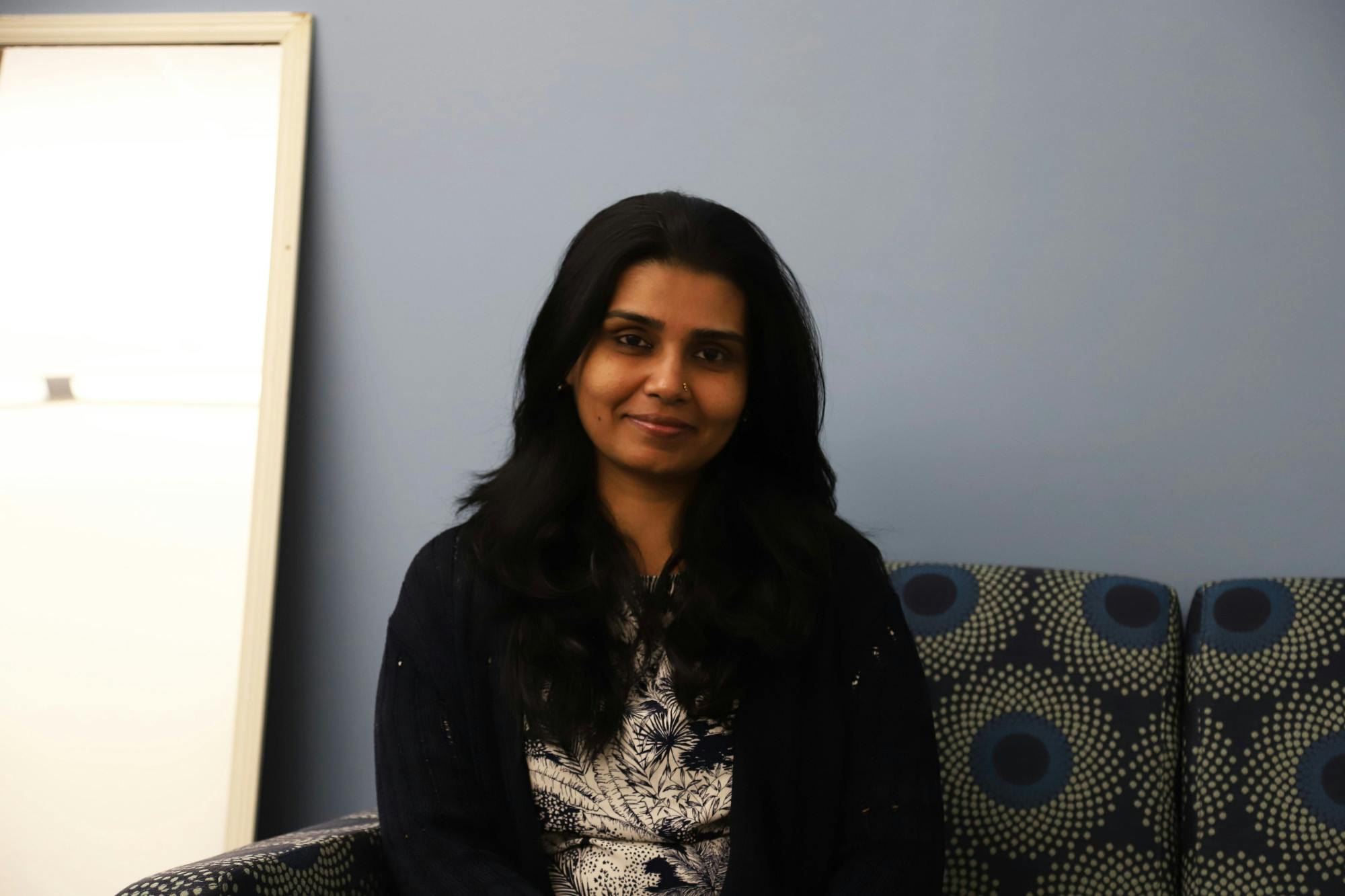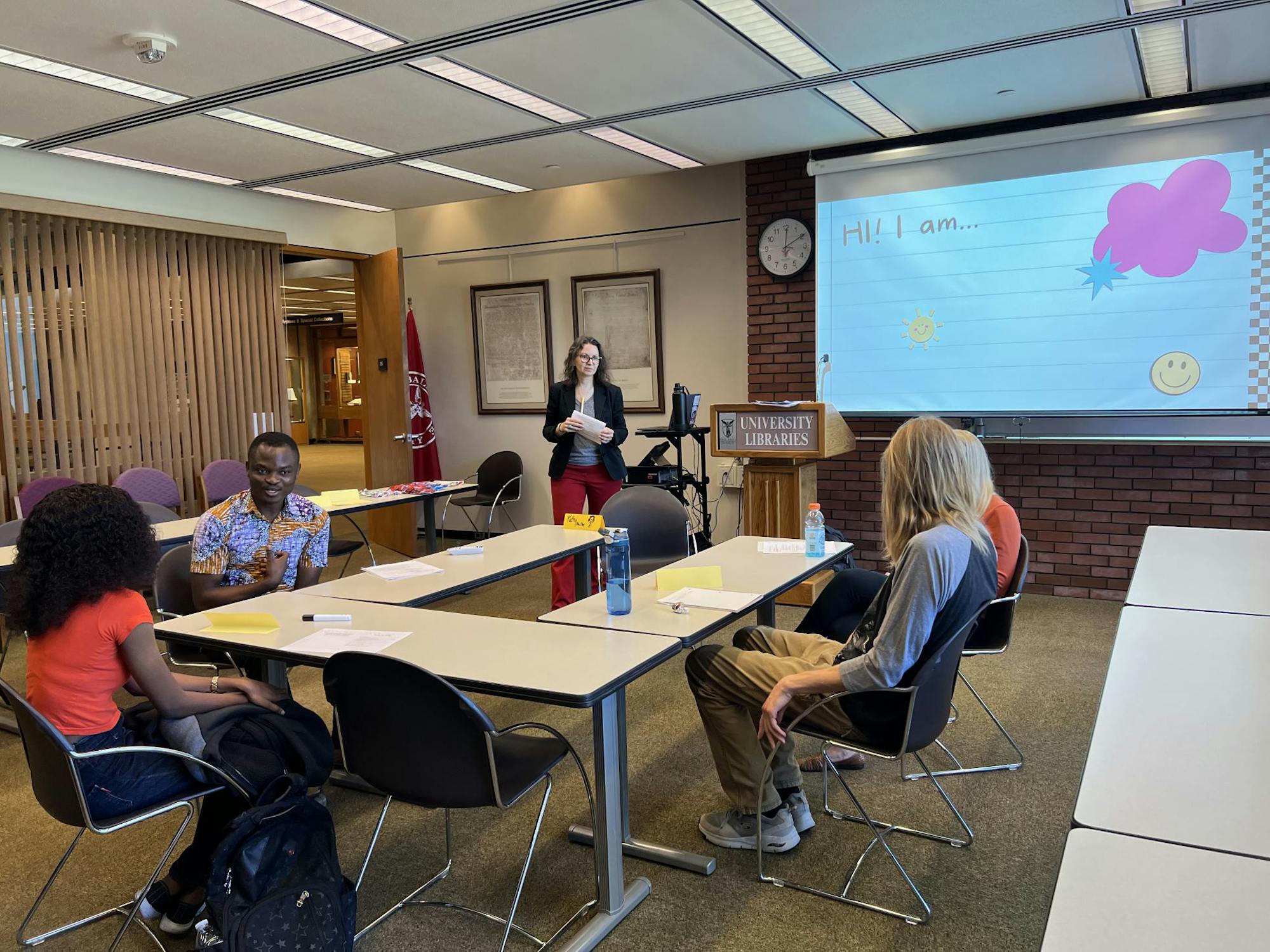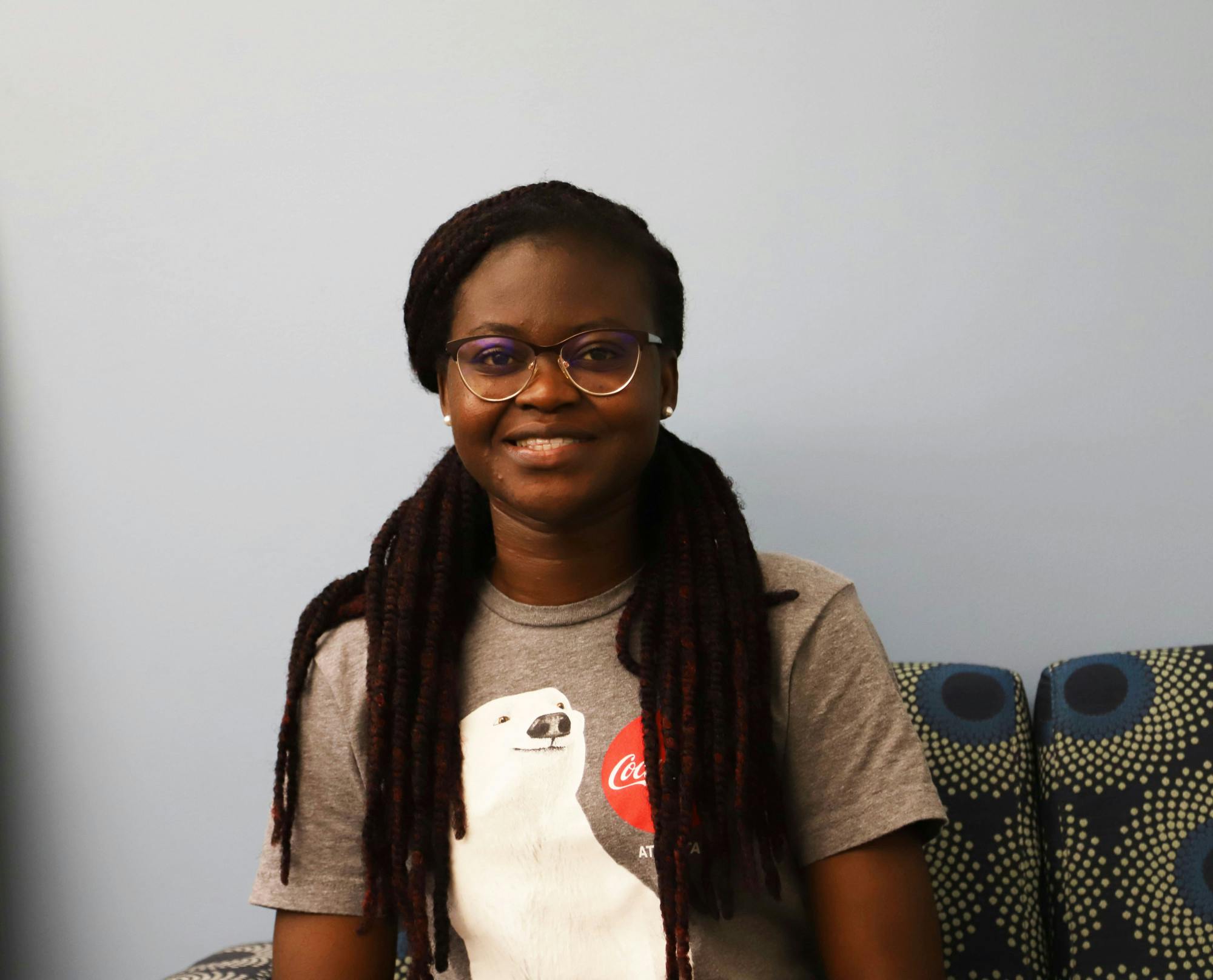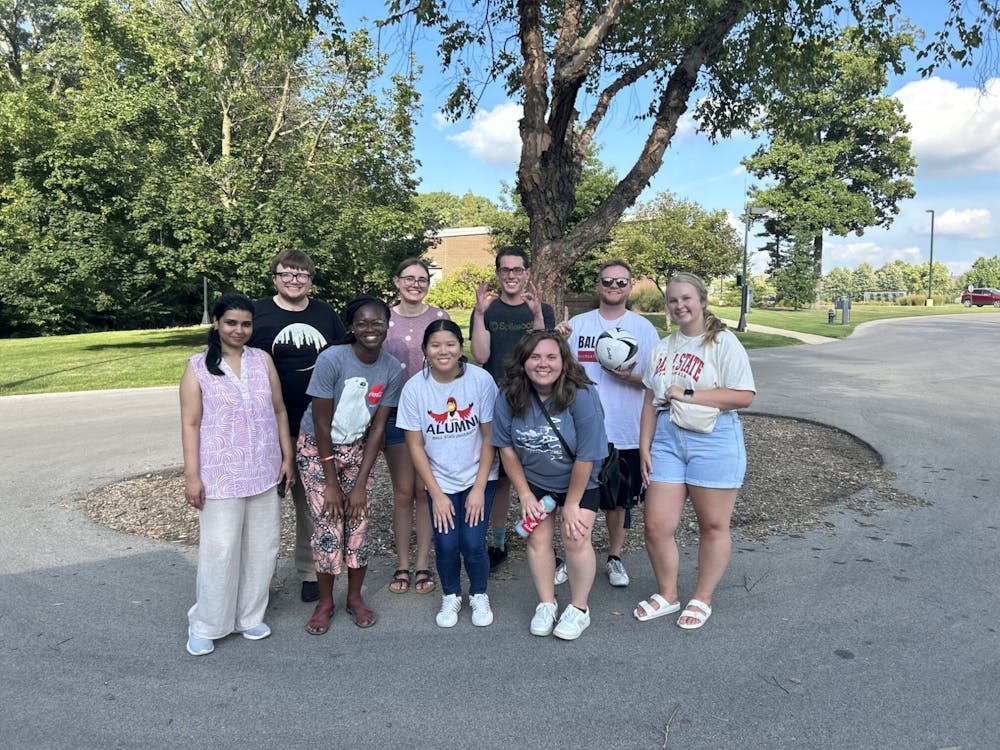Graduate Opportunities and Leadership Development (G.O.L.D), is a new program started by Ball State University’s graduate school. The program already has 99 students registered.
G.O.L.D was created this year to “help students enhance their career and help them select the best program [of study] of their choice,” Dushani Eshwaran, first-year graduate student and graduate assistant, said.

Graduate Student Dushani Eshwaran poses for a photo Sept. 19 in the West Quad building. Olivia Ground, DN
Robin Phelps-Ward, associate dean of Ball State’s graduate school, described G.O.L.D. as a “professional development program that is holistic, voluntary [and] zero cost, [created] to support graduate students’ skills in the areas of career success, communication, inclusive excellence, research, teaching and wellness.”
Students enrolled in G.O.L.D. can obtain these skills by attending a variety of 48 offered workshops, events and development programs. Phelps-Ward emphasized both the range and expertise that lead each of the sessions.
“All of those kinds of workshops, [graduate staff] believe, will help students be successful in their graduate programs,” Phelps-Ward said.
The opportunities vary from workshops led by faculty in the Communications Department about understanding cultural context, to workshops informing students about the resources in Bracken Library.

Graduate students sitting together earning presentation skills through a G.O.L.D development program Aug. 31 in the Letterman Building. Robin Phelps-Ward, Photo provided
Phelps-Ward said that she hopes that each of them will walk away from the program with a sense of self-advocacy in their collaborative abilities to research and lead.
For Phelps-Ward and her colleagues, the idle time during COVID-19 raised many questions. Questions she said were based on how best to prepare students for their careers and support them during their time in the graduate school.
“G.O.L.D helps answer [those] question[s], and is what [graduate staff] hope is a solution to [those] problem[s],” she said. “A lot of us experienced isolation during COVID, and so we want to bring students together to help build their networks, to find community, and learn together within a community of practice."
As the program currently stands, there is a focus on creating a general and inclusive learning environment for all majors.
“Right now, [workshops] are broad and relatable for all students,” Phelps-Ward said.
However, she would like to see the program expanded more into targeted workshops for specific majors.But, some of the skill sets associated with G.O.L.D. 's six competency areas go beyond the professional setting, aiming to have a greater, more philosophical impact on one’s perception of their cultural surroundings.
Phelps-Ward added it is from those types of lessons that students will begin to “really understand their personality, identity, privileges and biases.” Real results from the program can already be felt by students involved in the program.
Rebecca Adu-Boahene, graduate student and graduate assistant for G.O.L.D, said, “The G.O.L.D program is helping me grow my leadership, and also to be able to identify myself.”

At the end of the academic year, students who completed the assigned criteria for completion in the program will be recognized for their work at the Graduate Student Recognition Ceremony.
For undergraduates students interested in the G.O.L.D program and its curriculum, a subsidiary program exists: Pathways. The program is catered to undergraduate students of marginalized backgrounds, Adu-Boahene said.
Both programs are under a professional development “umbrella,” Adu-Boahene said, clarifying that “G.O.L.D focuses on workshops and then Pathways focuses on mentorship by matching faculty members with students.”
Deadlines for both programs have been extended due to low turnout rates thus far, but the extended grace periods and multiple events give more students opportunities to get involved.
Contact Katerine Hill with comments at katherine.hill@bsu.edu or on Instagram @cool_kate_04 .





